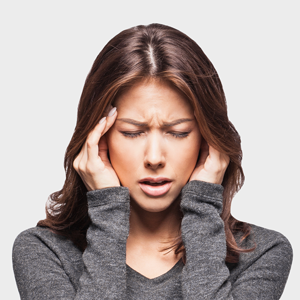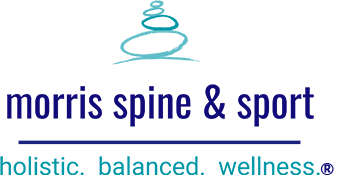Migraine Treatment in Morristown
 According to estimates from the Migraine Research Foundation, migraines affect more than 39 million Americans. These headaches cause severe, often debilitating pain. While some headaches are related to tension or stress, migraines are typically caused by a combination of chemical and environmental factors.
According to estimates from the Migraine Research Foundation, migraines affect more than 39 million Americans. These headaches cause severe, often debilitating pain. While some headaches are related to tension or stress, migraines are typically caused by a combination of chemical and environmental factors.
These headaches frequently affect just one side of the head and can be accompanied by other symptoms such as sensitivity to light, sound, or even touch. Unlike tension headaches, which tend to be more diffuse, migraines can present with throbbing or pulsating pain that lasts for hours or even days.
Common Triggers
Migraines are complex and can be triggered by various factors, which differ from person to person. Some of the most common triggers include hormonal changes, such as those experienced during menstruation, pregnancy, or menopause, as well as stress and emotional tension. Certain foods and beverages, including alcohol, caffeine, and processed foods, can also provoke migraines.
Environmental factors, like bright lights or strong smells, and medications that affect hormone levels or blood pressure may contribute. Additionally, sleep disturbances or irregular sleep patterns can trigger migraines. Identifying these triggers is often the first step in managing migraine headaches.
Recognizing the Symptoms
Migraines are often more than just headaches—they have many symptoms that can disrupt daily life. The most common symptoms include:
- Intense, throbbing pain on one side of the head, although both sides can be affected
- Sensitivity to light (photophobia) and sound (phonophobia)
- Nausea and vomiting
- Visual disturbances or “aura,” such as flashing lights or blind spots
- Numbness or tingling, typically on the same side as the headache
Diagnosing Migraine Headaches
Diagnosing migraines typically involves thoroughly reviewing your medical history and a physical examination. Dr. Case may ask questions to identify potential triggers, the frequency of your headaches, and accompanying symptoms. In some cases, additional tests may be done to rule out other conditions that could be causing your headaches, such as sinus issues or neurological disorders.
How We Can Help
Chiropractic adjustments can help alleviate migraine pain by improving spinal alignment, reducing nerve irritation, and addressing any musculoskeletal issues that may contribute to headaches. Dr. Case can also recommend certain botanical supplements that may help ease migraines.
The Power of Prevention
Preventing migraines is often a matter of identifying and avoiding triggers. Here are a few helpful strategies:
- Keeping a headache diary to track potential triggers and patterns
- Maintaining a consistent sleep schedule
- Managing stress through techniques like yoga, meditation, or exercise
- Considering dietary changes, such as reducing caffeine and processed foods
If you frequently suffer from migraines, these steps can help reduce the frequency and severity of your headaches.
Stop the Pain & Start the Healing
If you’re struggling with frequent migraines, contact Morris Spine & Sport today to schedule an evaluation with Dr. Case. We want to help you reclaim your life.
CONTACT US

